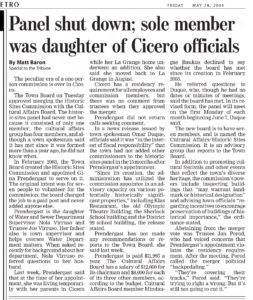Who said nice guys finish last?
Being nice—cordial, respectful, patient—pays dividends, whether in public relations, marketing or, yes, even journalism.
Say, for instance, you are a newspaper reporter getting stonewalled in your efforts to reach someone getting paid $1,000 a month to serve on a town commission that has never met. (In fairness, this commission doesn’t have any other members and meetings generally need at least two to tango.)
Anyway, every time you try calling her home (in a community outside of the town paying her), she never picks up. Caller ID, you figure, must be tipping her off to your identity.

Without getting at least an on-the-record “no comment,” there may not be enough meat on the bones of this story to go to print. Ideally, you want to ask some questions, first soft and then increasingly hard, and see what kind of answers you get.
By now, you’re used to being ignored. After all, the Town President is 15 months into a two-year period in which he doesn’t return dozens of phone calls from you and uses bodyguards to shield you from him as he scurries from board meetings to the sanctuary of his office.
An Unoccupied Desk, An Opportunity
So, one day at Town Hall, only a few feet from the Town President’s office, you are chatting with an employee you have struck up a rapport with over many months. You mention your cell phone doesn’t have great reception in this area and ask if you can use a phone at an unoccupied desk in the room.
Of course, you don’t mention the purpose of your call—and the employee doesn’t ask. Instead, he replies, “Sure, go ahead.”
You dial the same number that has never gotten a pick-up in many tries. This time, lo and behold, the subject of your would-be story answers. It might have something to do with the fact that both her parents, highly placed town officials, work at Town Hall and her caller ID suggests this is a call from one of them.
Instead, it’s you—well, it’s me, in this case during my time as a freelance reporter for the Chicago Tribune. This is precisely what played out at Cicero Town Hall one afternoon in May 2004. Twenty minutes later, I bid a cordial good-bye after concluding the breakthrough interview that catapulted this from a story idea to a story, headlined “Cicero panel appointment questioned.”
Four days later came a follow-up story, with a headline of “Panel shut down,” on the merging of the one-person commission with a four-person commission that may or may not have ever met since its creation 15 months earlier.
Only in Cicero, where if you are a nice enough guy, you can still get the story.
Related Posts:
Cubs tattoo helps flesh out story on political newcomer
`The Post’: A Timeless, and Most Timely, Message About the Importance of a Free Press
